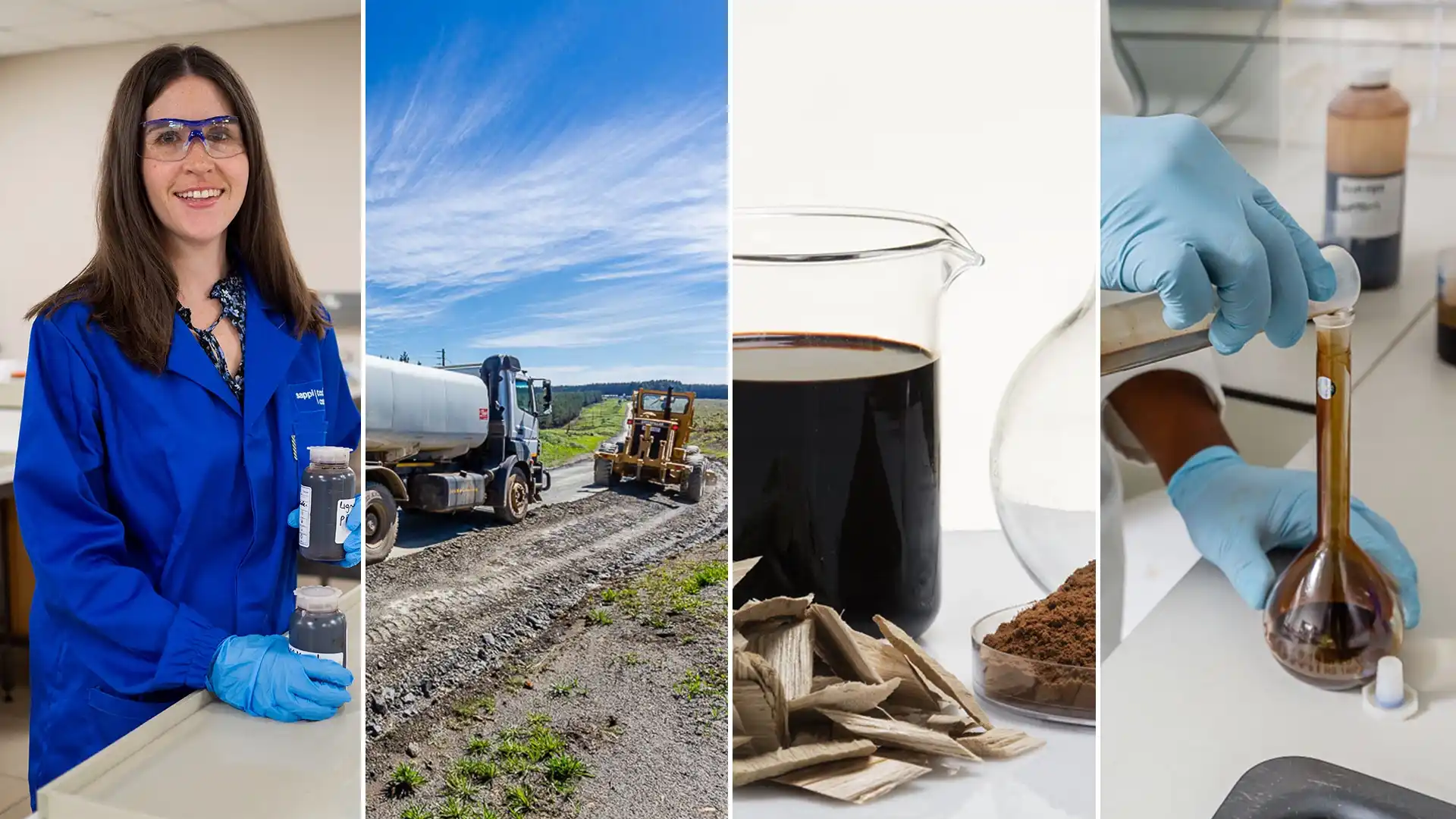South African chemical engineering student among top three in prestigious global award
Despite women making up around half the world’s population, female researchers constitute 33% of researchers globally and only 35% of all students in Science, Technology, Engineering and Technology (STEM) related fields of study are women. This has not stopped 25-year-old South African Leane Naude who clinched third place in the 2022-2023 Blue Sky Young Researchers Innovation Awards programme, a global initiative, driven by the International Council of Forest and Paper Associations (ICFPA).
The programme, which recognises young researchers in the field of wood science, harvested wood products, and forest products innovation, entailed various country-hosted rounds and the international round.
During the local round, organised by the Paper Manufacturers Association of South Africa (PAMSA), Naude, a Master of Science (Chemical Engineering) student at North West University, submitted her project which outlines how she has developed a more cost-effective purification method of lignosulphonate, an abundant and versatile alternative to fossil-based fuels. Her work was put forward to the international round.
Jane Molony, executive director at PAMSA says, “With International Day of Women and Girls in Science marked annually on 11 February, it is important that we help shine a spotlight on future leaders in the field and it’s fantastic to see three young women as the top three this year.”
She adds, “While there is certainly a place for everyone in our sector, it is critical to show young women and girls that they can achieve incredible things if they pursue careers in STEM.”
Naude’s research on the application of lignosulphonate in high-end products contributes towards the circular economy and improves the overall sustainability of the pulp and paper industry. Lignosulphonate is often used as a dust suppressant, among many other uses.
“I am honoured to have been selected and to put South Africa on the map in the field of wood science and STEM,” says Naude. “My project, which has resulted in a provisional international patent application, presents another way of purifying a low-value pulp and paper by-product into a high value product, thereby supporting a circular bio-economy as well as greener alternatives to carbon-intensive materials. By making extraction processes cost-effective, we can find more ways to put by-products such as lignin to better and greener use.”
Naude completed her Master of Engineering under PAMSA’s bursary and research programme which supports excellence in chemical engineering by sponsoring Bachelor of Science students to do their Masters in Engineering. She is currently working as an Engineer-in-Training at at the Sappi Technology Centre in Pretoria.
Naude will be heading to Amsterdam in The Netherlands in May to present her research project to an international group of forest sector CEOs at ICFPA’s Global CEO Roundtable event.
She will be joined by Ivana Amorim Dias, representing Brazil, and Ilona Lappänen from Finland, who were selected for first and second place respectively.
“We are truly inspired by the high calibre of submissions received for this year’s Blue-Sky Awards program,” noted ICFPA president Jori Ringman. “All candidates are leading the way in developing sustainable and impactful solutions that have the potential to make a positive difference in climate smart forestry and forest products, clean manufacturing, and the forest bioeconomy. The three winning researchers show that products from the circular bioeconomy can provide superior alternatives to fossil-based ones and that bio-based materials can be a solution to the global issues that an economy based on fossil materials has created. We are honoured to recognize and support their pioneering work,” added Ringman, who is also Director General of CEPI (the Confederation of European Paper Industries).
The International Day of Women and Girls in Science promotes full and equal access to and participation in science for women and girls and raises awareness on the opportunities available to them in the STEM fields. According to the UN, women are typically given smaller research grants than their male colleagues and, while they represent 33% of all researchers, only 12% of members of national science academies are women.
A little more about lignin
- Lignin, an abundant organic polymer found in wood, has numerous sustainable functionalities that make it useful in various applications as a greener alternative.
- Lignin acts as a binding agent, making it an effective and cost-efficient adhesive for pellets and compressed materials. It prevents clumping and settling of undissolved particles in suspensions by attaching to their surfaces. This reduces the amount of water required to dilute a product.
- Lignin can also stabilise emulsions of oil and water, making them resistant to separating. It ties up metal ions, preventing them from reacting with other compounds and becoming insoluble. This sequestering action can be used in water treatment.




